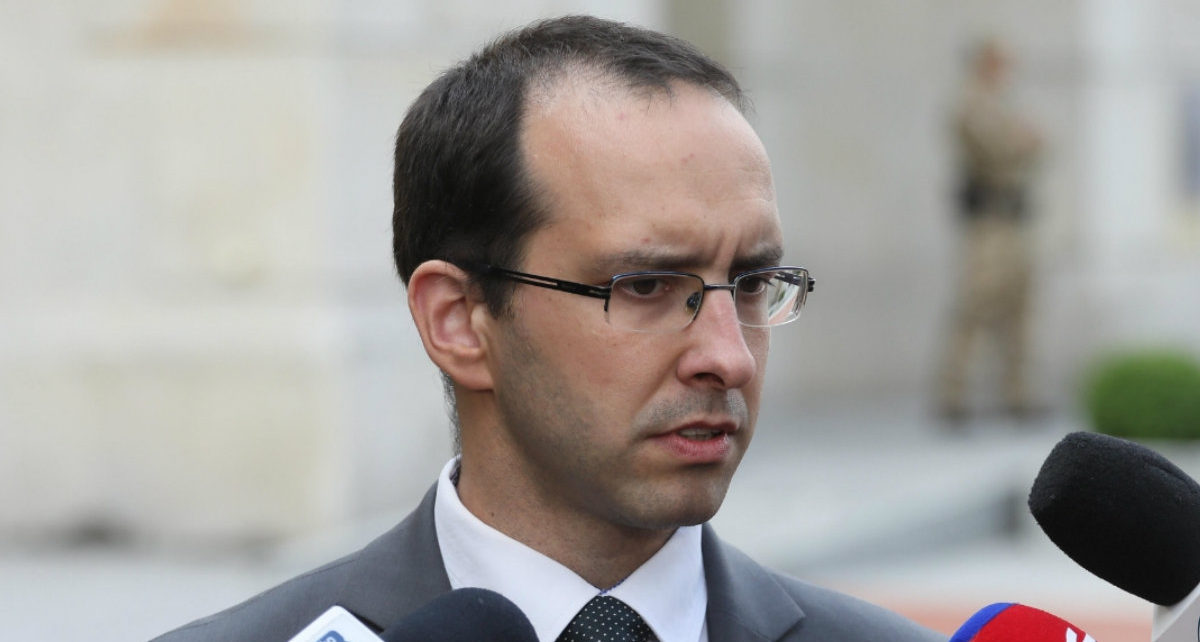By Stanisław Żaryn, for StopFake
Poland was against the construction of Nord Stream 2 from the very beginning, pointing to the strictly political significance of this project. Over time, it is clear that the German-Russian gas pipeline is harmful to our region not only economically – it will also have an impact on the security of Central Europe.
The construction of Nord Stream 2 follows a sequence of Russian initiatives aimed at bypassing Central European countries in the transit of energy supplies to Western Europe. This situation poses the most serious threats, primarily to Ukraine. In economic terms, Gazprom’s resignation from transmitting gas through the Ukrainian network means that Kiev will lose transit revenues, which constitute an important item in the state budget. It also poses a risk of suspending – under any pretext – supplies for Ukraine’s internal needs.
There is no doubt that Russia will use the energy issue to exert political pressure on Ukraine. It is doing this right now, on the one hand limiting gas supplies to and through Ukraine, and on the other hand also leading to a reduction in the supply of other raw materials. A serious threat to the Ukrainian power system is, for example, suspension by Russia of coal supplies from November 1 and the actual blocking of the possibility of importing this energy resource from Kazakhstan. At the same time, the Russian energy concern Inter RAO (which has a monopoly on electricity exports) canceled the auction for electricity supplies to Ukraine. Kiev still uses energy supplies from Belarus, but there is no guarantee that they will be stable and sufficient due to the technical limitations of the existing cross-border connections, as well as political conditions. As a result, Ukraine must take into account the necessity to introduce restrictions on the supply of electricity to industry.
It is clearly visible that the Russian side is trying to create an energy crisis in Ukraine, which will probably cause significant problems in the coming months. In the case of Ukraine, the issue of energy security is directly related to the most serious threats. The energy crisis may have an impact on military security. This can be clearly seen on the example of Nord Stream 2.
When Ukraine ceases to be an important country from the point of view of Russian gas exports to Western Europe, it will be exposed to the risk of more aggressive actions (including potentially military actions) from Russia, which has not given up its efforts to bring Kiev back into its influence zone. In a situation where Russian gas supplies to the West of Europe can be made bypassing Ukraine, Russia will have an open path to further destabilization of this country. The link between the situation in Ukraine and the credibility of Russian supplies to the West was a factor limiting the Kremlin’s aggression. This factor will go away with the launch of NS2. Once this gas pipeline is operational, Moscow will also be able to exert a similar pressure on Belarus if it obstructs Russia’s plans. This will only be the beginning of the game against Europe.
The limitation or suspension of gas supplies via gas pipelines running through Ukraine and possibly Belarus also gives Russia the opportunity to exert economic pressure on other Central European countries, which Moscow would like to see in its sphere of influence. As a result, Nord Stream 2 may provide Moscow with a blackmail tool used to enforce political decisions that are favorable to it.
Nord Stream 2 will also have a direct impact on the security of the Baltic Sea. The construction of the Nord Stream 2 gas pipeline carries intelligence and military threats for the entire Baltic Sea region. Russia may use the offshore gas pipeline to install devices enabling it to conduct intelligence activities in large areas of the Baltic Sea, including those located in the exclusive economic zones of NATO and EU member states. With regard to the safety of the gas pipeline’s underwater infrastructure, Russia also may justify the location of its navy units along the Nord Stream 2 route, which could lead to restriction of the freedom of navigation in the Baltic Sea.
A few months ago, Poland was accused by Russian propaganda of attacks on a ship laying a gas pipeline on the bottom of the Baltic Sea. On this basis, a message was formed in the regime Russian media that Poland was capable and might be interested in attacking the NS2 infrastructure. Russian propaganda can similarly justify the presence of the Russian navy in the Baltic Sea. It is enough to find an excuse for the Kremlin to recognize that the gas pipeline is in danger. Russia is good at finding excuses…
Undoubtedly, the construction and commissioning of Nord Stream 2 will result in the emergence of new threats and new opportunities for Russia to influence Central Europe. This gas pipeline will fuel Russian aggression. And the Kremlin is too aggressive right now…
By Stanisław Żaryn, for StopFake
Stanisław Żaryn is a spokesman for the Minister – Secret Services Coordinator





